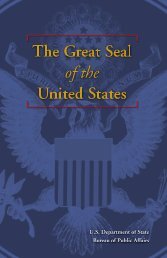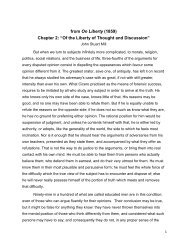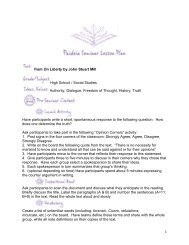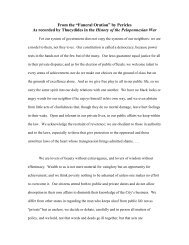Rousseau_contrat-social
You also want an ePaper? Increase the reach of your titles
YUMPU automatically turns print PDFs into web optimized ePapers that Google loves.
through; its happiness would have to be independent of us, and yet ready<br />
to occupy itself with ours; and lastly, it would have, in the march of<br />
time, to look forward to a distant glory, and, working in one century,<br />
to be able to enjoy in the next.[11] It would take gods to give men<br />
laws.<br />
What Caligula argued from the facts, Plato, in the dialogue called the<br />
Politicus, argued in defining the civil or kingly man, on the basis of<br />
right. But if great princes are rare, how much more so are great<br />
legislators? The former have only to follow the pattern which the latter<br />
have to lay down. The legislator is the engineer who invents the<br />
machine, the prince merely the mechanic who sets it up and makes it go.<br />
"At the birth of societies," says Montesquieu, "the rulers of Republics<br />
establish institutions, and afterwards the institutions mould the<br />
rulers."[12]<br />
He who dares to undertake the making of a people’s institutions ought to<br />
feel himself capable, so to speak, of changing human nature, of<br />
transforming each individual, who is by himself a complete and solitary<br />
whole, into part of a greater whole from which he in a manner receives<br />
his life and being; of altering man’s constitution for the purpose of<br />
strengthening it; and of substituting a partial and moral existence for<br />
the physical and independent existence nature has conferred on us all.<br />
He must, in a word, take away from man his own resources and give him<br />
instead new ones alien to him, and incapable of being made use of<br />
without the help of other men. The more completely these natural<br />
resources are annihilated, the greater and the more lasting are those<br />
which he acquires, and the more stable and perfect the new institutions;<br />
so that if each citizen is nothing and can do nothing without the rest,<br />
and the resources acquired by the whole are equal or superior to the<br />
aggregate of the resources of all the individuals, it may be said that<br />
legislation is at the highest possible point of perfection.<br />
The legislator occupies in every respect an extraordinary position in<br />
the State. If he should do so by reason of his genius, he does so no<br />
less by reason of his office, which is neither magistracy, nor<br />
Sovereignty. This office, which sets up the Republic, nowhere enters<br />
30











